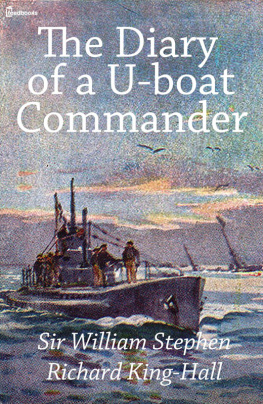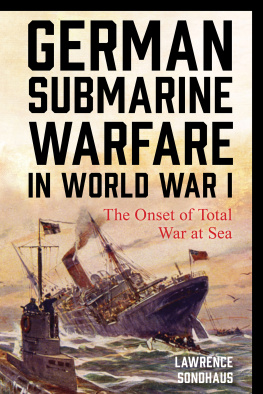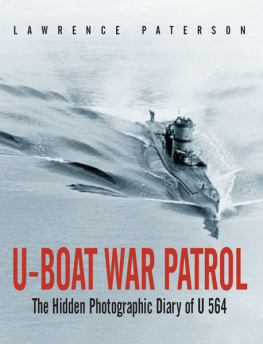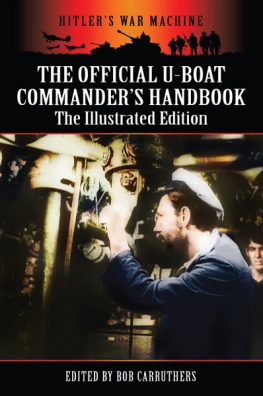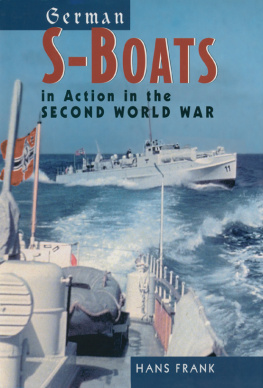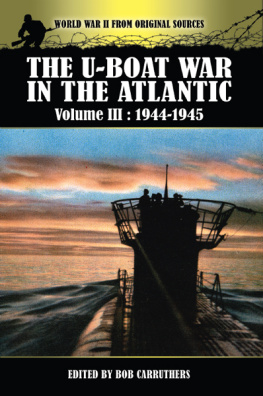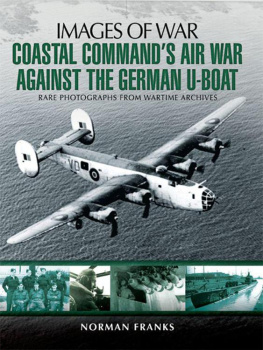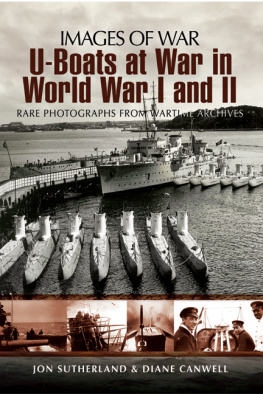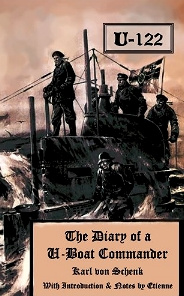Introduction
"I would askyou a favour," said the German captain, as we sat in the cabin of aU-boat which had just been added to the long line of bedraggledcaptives which stretched themselves for a mile or more in HarwichHarbour, in November, 1918.
I made no reply; I had just granted him a favour by allowing himto leave the upper deck of the submarine, in order that he mightawait the motor launch in some sort of privacy; why should he askfor more?
Undeterred by my silence, he continued: "I have a great friend,Lieutenant-zu-See Von Schenk, who brought U.122 over last week; hehas lost a diary, quite private, he left it in error; can he haveit?"
I deliberated, felt a certain pity, then rememberedthe Belgian Prince and other things, and so,looking the German in the face, I said:
"I can do nothing."
"Please."
I shook my head, then, to my astonishment, the German placed hishead in his hands and wept, his massive frame (for he was a verybig man) shook in irregular spasms; it was a most extraordinaryspectacle.
It seemed to me absurd that a man who had suffered, withoutvisible emotion, the monstrous humiliation of handing over hiscommand intact, should break down over a trivial incidentconcerning a diary, and not even his own diary, and yet there wasthis man crying openly before me.
It rather impressed me, and I felt a curious shyness at beingpresent, as if I had stumbled accidentally into some private recessof his mind. I closed the cabin door, for I heard the voices of mycrew approaching.
He wept for some time, perhaps ten minutes, and I wished verymuch to know of what he was thinking, but I couldn't imagine how itwould be possible to find out.
I think that my behaviour in connection with his friend's diaryadded the last necessary drop of water to the floods of emotionwhich he had striven, and striven successfully, to hold in checkduring the agony of handing over the boat, and now the dam hadcrumbled and broken away.
It struck me that, down in the brilliantly-lit, stuffy littlecabin, the result of the war was epitomized. On the table were someinstruments I had forbidden him to remove, but which my firstlieutenant had discovered in the engineer officer's bag.
On the settee lay a cheap, imitation leather suit-case,containing his spare clothes and a few books. At the table satGermany in defeat, weeping, but not the tears of repentance, ratherthe tears of bitter regret for humiliations undergone and ambitionsunrealized.
We did not speak again, for I heard the launch come alongside,and, as she bumped against the U-boat, the noise echoed through thehull into the cabin, and aroused him from his sorrows. He wiped hiseyes, and, with an attempt at his former hardiness, he followed meon deck and boarded the motor launch.
Next day I visited U.122, and these papers are presented to thepublic, with such additional remarks as seemed desirable; for somecurious reason the author seems to have omitted nearly all dates.This may have been due to the fear that the book, if captured,would be of great value to the British Intelligence Department ifthe entries were dated. The papers are in the form of two volumesin black leather binding, with a long letter inside the cover ofthe second volume.
Internal evidence has permitted me to add the dates asregards the years. My thanks are due to K. for assistance intranslation.
ETIENNE.
The Diary of a U-boat Commander
One volume of my war-journal completed, and I must confess it isdull reading.
I could not help smiling as I read my enthusiastic remarks atthe outbreak of war, when we visualized battles by the week. What acontrast between our expectations and the actual facts.
Months of monotony, and I haven't even seen an Englishmanyet.
Our battle cruisers have had a little amusement with the coastraids at Scarborough and elsewhere, but we battle-fleet fellowshave seen nothing, and done nothing.
So I have decided to volunteer for the U-boat service, and myname went in last week, though I am told it may be months before Iam taken, as there are about 250 lieutenants already on the waitinglist.
But sooner or later I suppose something will come of it.
I shall have no cause to complain of inactivity in that Service,if I get there.
I am off to-night for a six-days trip, two days of which are tobe spent in the train, to the Verdun sector.
It has been a great piece of luck. The trip had been arranged bythe Military and Naval Inter-communication Department; and twoofficers from this squadron were to go.
There were 130 candidates, so we drew lots; as usual I was luckyand drew one of the two chances.
It should be intensely interesting.
At
I arrived here last night after a slow and tiresome journey,which was somewhat alleviated by an excellent bottle of French winewhich I purchased whilst in the Champagne district.
Long before we reached the vicinity of Verdun it was obvious tothe most casual observer that we were heading for a centre ofunusual activity.
Hospital trains travelling north-east and east were numerous,and twice our train, which was one of the ordinary military trains,was shunted on to a siding to allow troop trains to rumblepast.
As we approached Verdun the noise of artillery, which I hadheard distantly once or twice during the day, as the casual railwaytrain approached the front, became more intense and grew from a lowmurmur into a steady noise of a kind of growling description,punctuated at irregular intervals by very deep booms as someespecially heavy piece was discharged, or an ammunition dump wentup.
The country here is very different from the mud flats ofFlanders, as it is hilly and well wooded. The Meuse, in the courseof centuries, has cut its way through the rampart of hills whichsurround Verdun, and we are attacking the place from threedirections. On the north we are slowly forcing the French back oneither river banka very costly proceeding, as each wing mustadvance an equal amount, or the one that advances is enfiladed fromacross the river.
We are also slowly creeping forward from the east and north-eastin the direction of Douaumont.
I am attached to a 105-cm. battery, a young Major von Markel incommand, a most charming fellow. I spent all to-day in the advancedobserving position with a young subaltern called Grabel, also anice young fellow. I was in position at 6 a.m., and, as apparentlyis common here, mist hides everything from view until the sunattains a certain strength. Our battery was supporting the attackon the north side of the river, though the battery itself was onthe south side, and firing over a hill called L'Homme Mort.

